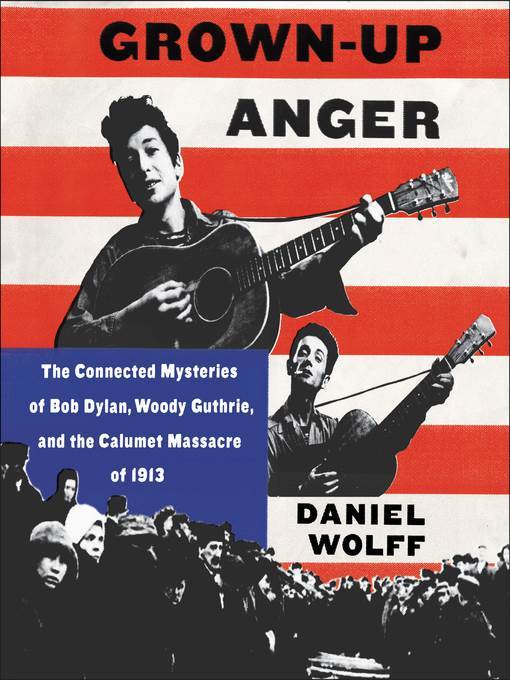
Grown-Up Anger
The Connected Mysteries of Bob Dylan, Woody Guthrie, and the Calumet Massacre of 1913
فرمت کتاب
audiobook
تاریخ انتشار
2017
نویسنده
Dennis Boutsikarisناشر
HarperAudioشابک
9780062676931
کتاب های مرتبط
- اطلاعات
- نقد و بررسی
- دیدگاه کاربران
نقد و بررسی

If excellence in audiobook narration means doing everything right while seeming to do little or nothing, Dennis Boutsikaris sets a standard here. In a feat of storytelling, Wolff has combined his own personal history growing up in Northern Michigan with the life stories of Bob Dylan and Woody Guthrie, and the intertwined histories of American folk music and radical politics. A notorious event in the labor movement, the Calumet Massacre, is a featured connection. Boutsikaris's reading is expressive but restrained, calculatingly understated in the manner of the music and performers he's describing. No accents or half-sung lyrics mar a performance that matches the text in every nuance yet never draws attention to itself. Here's a narrative that engages the heart and mind for a deeply satisfying listening experience. D.A.W. Winner of AudioFile Earphones Award � AudioFile 2017, Portland, Maine

April 24, 2017
In this bold and moving history, author and songwriter Wolff follows a path of memory and resistance through the labor struggles and music of 20th-century America. Wolff argues here that the mass murder of 74 men, women, and children (mine workers and members of their families—most of the victims were children) during a bitter strike in 1913 in Michigan reverberated through the careers of two remarkable American musicians. Using Woody Guthrie’s elegy for the massacre as a launching point, Wolff examines how the dust bowl and the Depression transformed the hillbilly entertainer into a radical artist. Linked to Calumet through his own Midwestern origins and his wholesale imitation of Guthrie, the young Bob Dylan inherited his role model’s hobo crown. Yet the very different conditions of post-WWII prosperity and teen rebellion in which he came up led Dylan to reject the pious expectations of the folk scene for a more personal rebellion, one that remade rock and roll. Without surrendering insight or authority, Wolff spans a remarkable range of material, including 19th-century copper mining on the Upper Peninsula, the origins of folk out of traditional genres, and the ’60s counterculture. Wolff’s descriptions of Guthrie are particularly engaging, as are his forays into music criticism and labor history. At times, the anger that Wolff foregrounds appears too amorphous to convincingly unify such diverse subjects and eras. Yet in a scathing finale that sends him to the postindustrial ghost town of Calumet, Wolff makes clear that by forgetting the past that Dylan and Guthrie passed down to us—and the injustices that motivated their art—we are in danger of losing our futures.

























دیدگاه کاربران